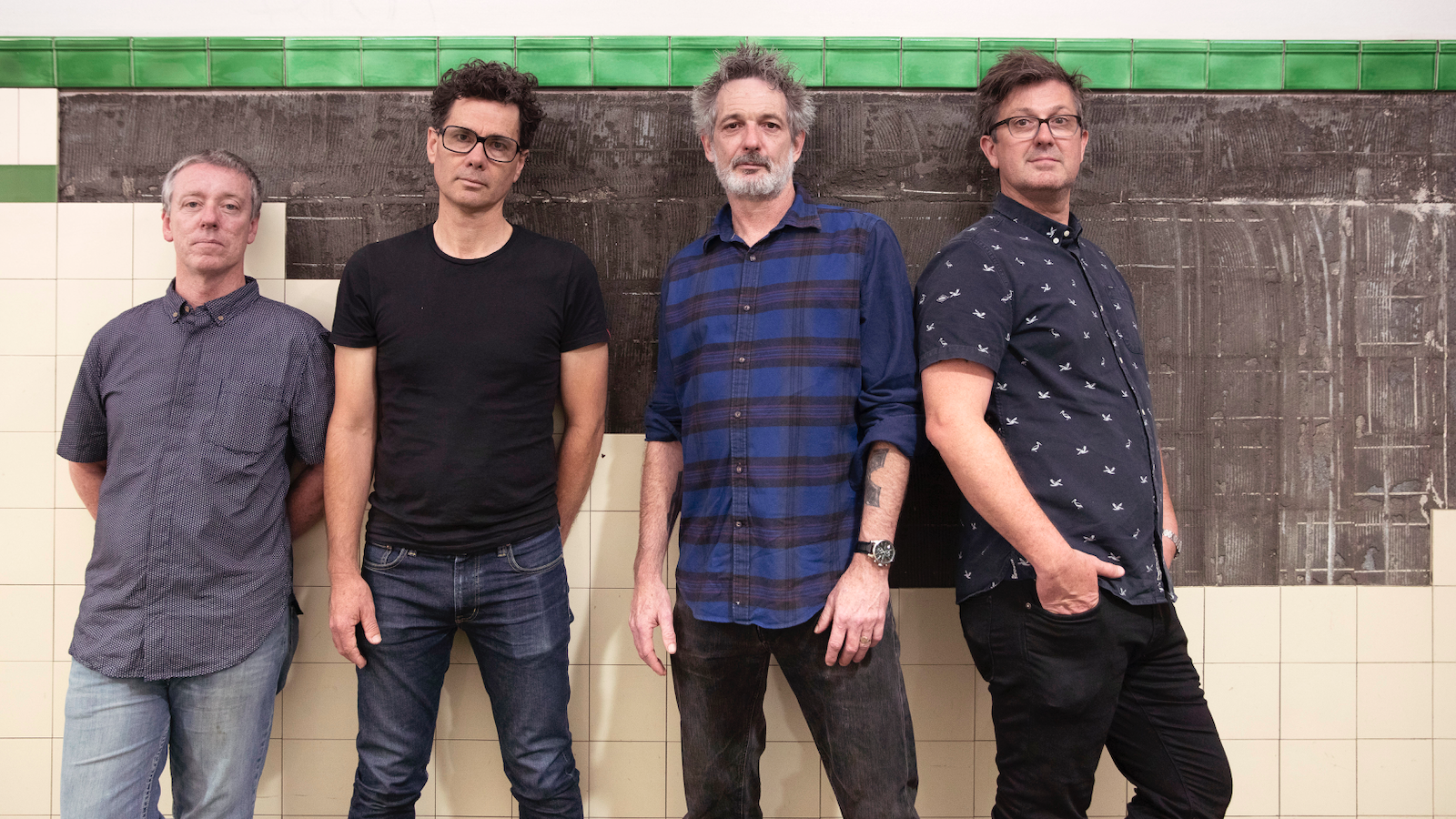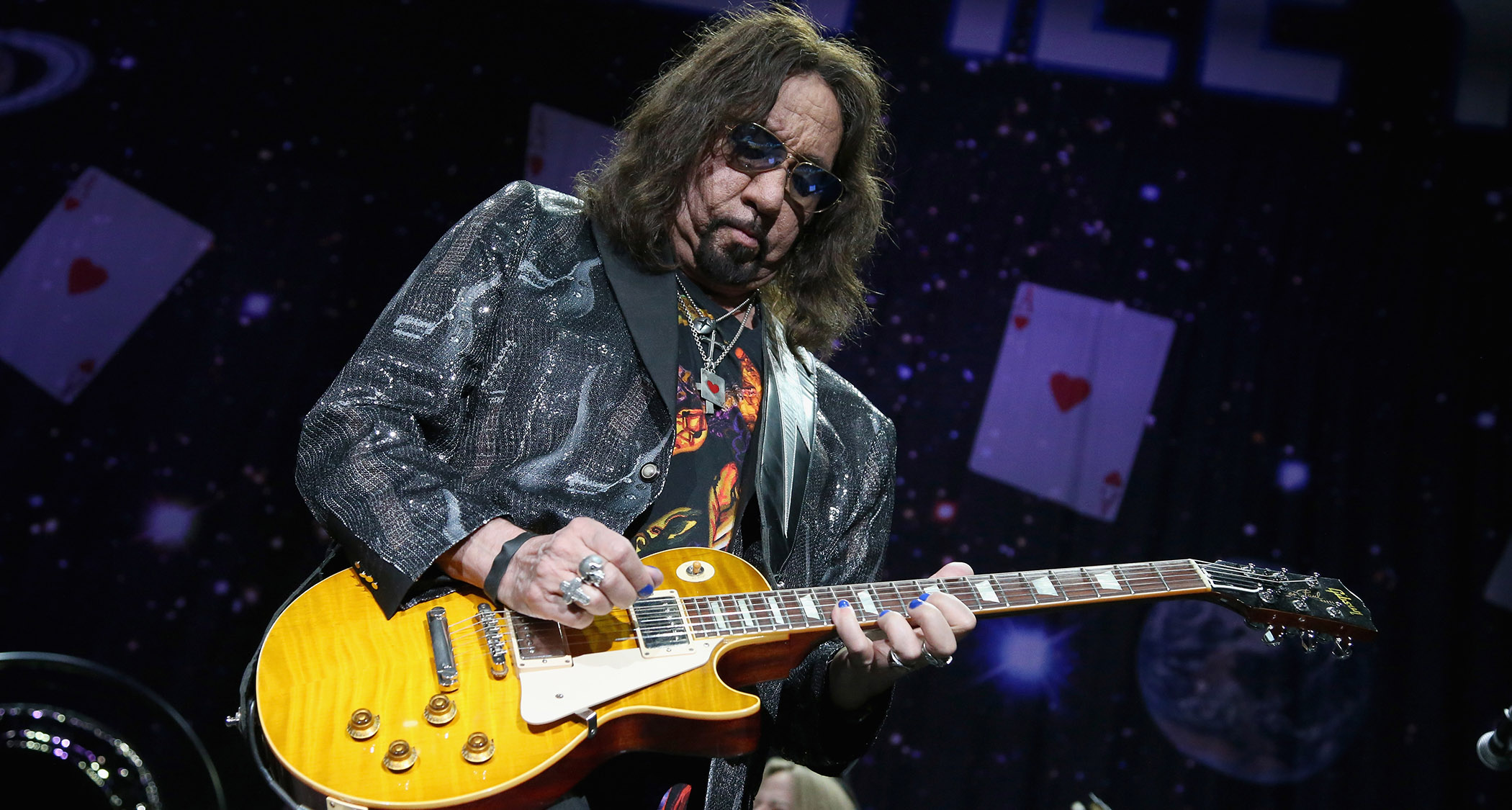Custard: Fresh ’N’ Funky
When it came to make LP8, Custard took full advantage of their spontaneous whimsicality.

Though they reformed in ’09 and have been going strong since, even Custard themselves will admit they peaked in the ‘90s. Virtually the forefathers of witty Australian pop-rock that took itself about as seriously as our government takes climate change (see: not at all), the quintet revelled in a brand of loveable larrikinism that seemed to have fizzled out around the mid-2000s.
But such is the power of nostalgia that Aussie crowds are once again starving for quirky, off-beat bangers that pose such philosophical inquiries as, “Will we ever be that funky again?” With album #8, Respect All Lifeforms, Custard have erupted back into their rightful place under the spotlight. The songs are sharp, smart, and just sound great – David McCormack and co. shine with the bright and bombastic spryness of their twenty‑something selves, as though they dove headfirst into the fountain of youth with instruments in hand.
As McCormack fills us in, much of that loose and lively energy comes from how quickly LP8 came together – over half of it on-the-fly in one five-hour session they walked into without any demos, to boot!
Would you go as far as to say we’ve got the definitive Custard album on our hands here?
Oh, no! God no! It’s probably as good as the other ones, maybe? I tend to like the more recent ones, just because… Well, they’re more recent, I guess. I think it’d probably be somewhere in the middle lane – six out of ten maybe? It’s certainly the quickest one we’ve done.
It all started in March of 2019 – we were over in Perth for a festival and we had a bit of time before our set, so Glenn [Thompson, drums] booked us into a studio called Poons Head in Fremantle. I’d never heard of it, but Rob [Grant], who owns the studio, had the best collection of old gear and beautiful drum kits and microphones and valve compressors… It was just an amazing treasure trove.
So we went in there at ten o’clock in the morning; we hadn’t practised any songs but we all had ideas in our heads, and we bashed out eight songs before three in the afternoon! And then we went and played the festival at sundown. So it was a very quick record to start.
And then we came back to Sydney, and Glenn and I went to our little studios – I’ve got one in my house and he’s got one near his house – I did some vocals on my songs and he worked on his, and then Glenn mixed it all and made it sound amazing, and now here we are! Bang, we’ve got an album, a year and a half later!
All the latest guitar news, interviews, lessons, reviews, deals and more, direct to your inbox!
How much of that Poons Head material made it onto the record?
We recorded eight in that morning, and six of those ended up on the record. The first single, “Funky Again”, was the first song we played – I’m thinking it was 10:15am on the Sunday morning. We got into the studio and got some sounds up through the headphones, and I said, “Okay, what about this song? It’s only got three chords or so, let’s start with this.” And we played it once, and then Rob said, “Okay, let’s do another take,” and that second take is the one that ended up on the record.
I do all of my vocal recording and writing at home – I like to get the music down with the band and then record at home on my little iMac in the front room; that way I can just mess around, no-one’s listening so I don’t have to worry about embarrassing myself… I don’t know what the words are going to be, so I’ll just try throwing a bunch of stuff at the wall, and chop and change parts around… It’s definitely my preferred way of working these days.
What do you reckon sparked that burst of intensive creativity?
We hadn’t really done any recording for two years at that point, but knowing that we were going to Perth and knowing that Glenn had booked us into that studio for a couple of hours, I was like, “Ah, okay, I’ve gotta come up with some ideas!” So it was very raw and very different, just figuring things out on the fly like, “Ah, okay, what about this chord progression?”
I’d record the ideas into my iPhone, just so I wouldn’t forget them. And once we were all in the room together, we’d look at each other, and whoever had an idea for a song would call out the chords, give us an indication of whether it was a fast one or a slow one, and then everyone would just get to do whatever they wanted.
Chordally, the songs on this album are pretty simple; like I said, “Funky Again” has maybe three chords, just with a little extra bit before the chorus, and then most of the other songs are pretty basic as well. In the early days, I think we made our songs a bit overly complicated, maybe – there’d be a fast bit and then a slow bit, and then a stop bit, and then another bit, and then I’ll do this and Paul [Medew, bass] will do that… Whereas these ones are a lot more restrained.
With my songs in particular, there’s a couple of chords for a verse, then maybe the same chords for the chorus, and if we’re lucky, there might be a little middle-eight that pops up for a minute, and then bang, back to those first three chords. I think the older I get, the more I want to keep it really simple.
Do you feel like that immediacy is evident in the final product?
Definitely! Some of the albums that we did in the ‘90s, I can’t listen to them anymore because we spent so long in the studio trying to flub around with things – we spent so long in pre-production and then so long tracking and so long overdubbing and so long mixing… It’s like, “Ah, I can’t listen to any of these again, I’ve already heard them a million times!”
Whereas these ones… In the case of “Funky Again”, I’ve only listened to it a handful of times – when we recorded it, we did it twice. And then when I was doing the vocals, I probably would have listened to it around 20 times. And then Glenn mixes all the stuff by himself, so the next time I heard it was the finished product. So to me it’s still like, “Oh, cool, this is pretty fresh!”
Let’s talk gear!
Over at Poons Head, I was using a Vox AC30 – it was a beautiful ‘60s one that Rob was showing off – and because we were doing a gig over there, I had my Japanese reissue ‘90s Fender Thinline that I love. And then Matty’s [Strong, guitar] got a black Strat, and he was playing through some really funky old Fender Bassman, I think. I’m talking really early ‘60s, twee, beautiful… Like I say, the amps in that studio were just immaculately old and brittle and broken, but sounded so good. And that’s all – I just go straight into the amp.
Matty has a couple of effects – an overdrive and a flanger, mostly – but we keep it pretty simple with our Fender guitars, because we just love the way they naturally sound. Y’know how some bands get these amazing tones, but they’ve got so many pedals and cables and impedance balance things or whatever – hex loops and signal chains… When we play live, I just plug straight in – sometimes I have a tuner, which is very professional of me, but sometimes I don’t even have that! We’re not really a gear-centric band, y’know? Whatever we’ve got there, we’ll use, but we’re not obsessive about it.

Ellie Robinson is an Australian writer, editor and dog enthusiast with a keen ear for pop-rock and a keen tongue for actual Pop Rocks. Her bylines include music rag staples like NME, BLUNT, Mixdown and, of course, Australian Guitar (where she also serves as Editor-at-Large), but also less expected fare like TV Soap and Snowboarding Australia. Her go-to guitar is a Fender Player Tele, which, controversially, she only picked up after she'd joined the team at Australian Guitar. Before then, Ellie was a keyboardist – thankfully, the AG crew helped her see the light…
